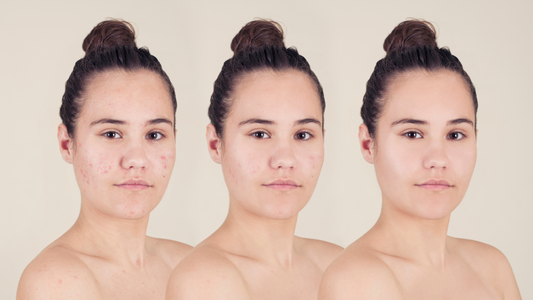
Choosing the Right Skincare for Your Skin Type
Selecting the right skincare products can be a daunting task, especially with the plethora of options available. Understanding your skin type is the first and most crucial step in building an effective skincare routine. This guide will help you navigate the process of choosing products that align perfectly with your skin's unique needs.
1. Identifying Your Skin Type
Generally, skin types are classified into four main categories: oily, dry, combination, and sensitive.
- Oily Skin: Characterized by excess sebum production, often leading to a shiny complexion and acne-prone skin.
- Dry Skin: Typically feels tight and may have flaky areas due to lack of moisture.
- Combination Skin: A mix of oily and dry, usually oily in the T-zone (forehead, nose, chin) and dry elsewhere.
- Sensitive Skin: Reacts easily to certain ingredients or environmental factors, often experiencing redness, itching, or irritation.
2. Cleansers for Every Skin Type
A good cleanser is the foundation of skincare. Oily and combination skins benefit from gel or foam cleansers that remove excess oil without stripping the skin. Dry and sensitive skins should look for cream or lotion cleansers that provide hydration while cleansing.
3. Moisturizers to Suit Your Needs
Moisturizing is essential for all skin types. Oily skin should opt for lightweight, oil-free moisturizers, while dry skin requires richer, more emollient creams. Combination skin may need different types of moisturizers for different areas, and sensitive skin should seek fragrance-free and hypoallergenic options.
4. The Role of Serums and Actives
Serums are concentrated formulations targeting specific concerns. For oily and acne-prone skin, serums with salicylic acid or niacinamide are beneficial. Hydrating serums with hyaluronic acid work well for dry skin, and antioxidant-rich serums are great for combination skin. For sensitive skin, look for soothing ingredients like centella asiatica or allantoin.
5. Sun Protection is Non-Negotiable
Regardless of skin type, sunscreen is a must. Use a broad-spectrum SPF of 30 or higher every day. There are formulas available for every skin type, from lightweight fluids for oily skin to hydrating versions for dry skin.
6. Special Considerations for Sensitive Skin
If you have sensitive skin, be cautious with new products. Patch testing, avoiding common irritants like alcohol, fragrances, and dyes, and opting for soothing ingredients are key.
7. Adjusting Your Routine as Needed
Your skin’s needs can change due to factors like age, weather, and hormonal fluctuations. Be flexible and ready to adjust your routine as required.
Conclusion — The key to effective skincare lies in tailoring your routine to your specific skin type. By understanding your skin’s unique characteristics and needs, you can choose products that not only maintain but also enhance your skin’s natural health and beauty.


